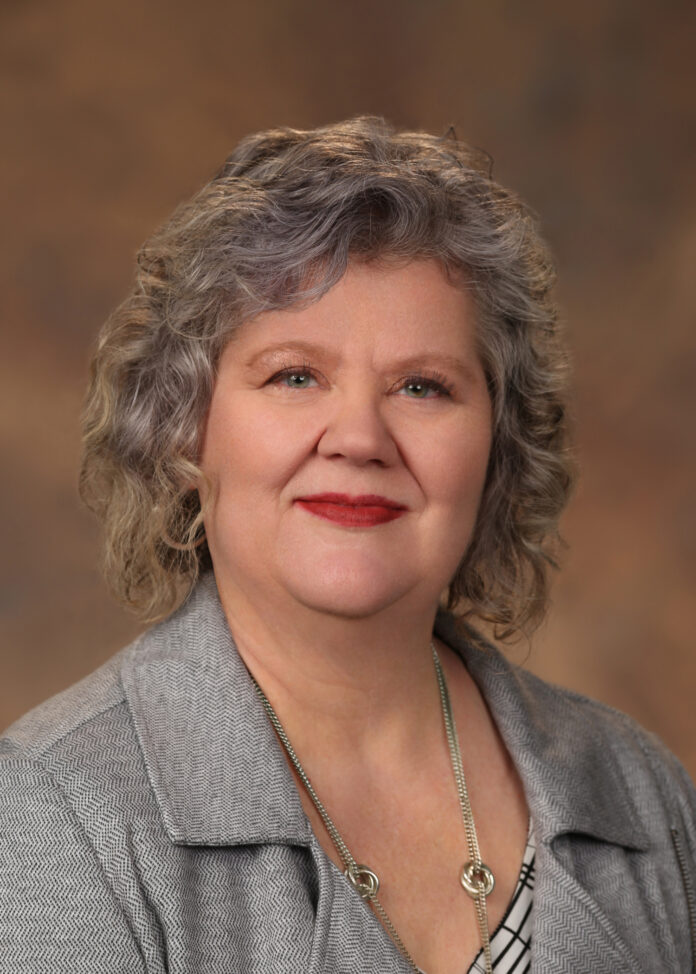
By Carol A. Cates, MSN, MBA, RN
Chief Nursing Officer
Odessa Regional Medical Center
2020 and so far in 2021 in my professional life have been tough. The pandemic has been so incredibly hard on health care providers across the board, and I can honestly say the last 18 months have been the most challenging in my career to date.
Personally, however, 2020 and 2021 have been wonderful, because in April of this year, my first grandbaby arrived. My oldest two children were born before I was a nurse, neither of them had a sonogram; the technology just wasn’t there yet. My youngest, had one very blurry sonogram, and I was a nurse, so I had much better insight into the physiological parts of pregnancy. It wasn’t even close to the care and understanding that we have now — just 27 years later.
The technology and advances in prenatal care that are available now are just astonishing. But with all the tech and all the advances, one of the best things a parent can do for their newborn has nothing to do with tech; it literally has been with us since the beginning of time. That one thing is breastfeeding. August is National Breastfeeding Month, and it’s a great time to remind people how important it is if you are pregnant or planning on becoming pregnant that breastfeeding is part of your birth plan.
Breastfeedng has significant benefits for both baby and mom, more than I think people realize. According to the Cleveland Clinic, breastfed babies have stronger immune systems, fewer stomach and digestive issues like diarrhea, constipation, gastroenteritis, gastroesophageal reflux, and pre-term necrotizing enterocolitis (NEC). They have fewer respiratory illnesses, fewer ear infections, fewer cases of bacterial meningitis, better vision and less retinopathy of prematurity, lower rates of infant mortality and sudden infant death syndrome (SIDS), and less overall illness and hospitalizations.
Long-term benefits for baby include fewer instances of allergies, eczema, and asthma, fewer childhood cancers, lower risk of diabetes, lower rates of Crohn’s disease and colitis, fewer speech and orthodontic problems, fewer cavities, less likelihood of obesity, and improved brain maturation.
Breastfed babies are less likely to develop rheumatoid arthritis, lupus, heart disease, multiple sclerosis and breast cancer later in life. The short-term benefits for moms who breastfeed their babies include losing baby pounds faster, their uterus returning to a normal size more quickly, less postpartum bleeding, fewer urinary tract infections, lower risk of anemia and less postpartum depression.
Moms get long-term benefits, too. Like their babies, they also have a lower risk of breast cancer. They have a lower risk of ovarian cancer and a lower risk of rheumatoid arthritis and lupus. Plus, they also have less endometriosis, less osteoporosis, less diabetes, less hypertension, and less cardiovascular disease.
The theme for National Breastfeeding Month this year is “Every Step of the Way.” The idea behind that being to help moms every step of the way during the breastfeeding journey, and that breastfeeding benefits babies every step of the way for their entire lives. With all the benefits to both mom and baby, you can see how those words make complete sense. Breastfeeding, even for short periods of time, has huge benefits; benefits that will affect that child for their entire life.
The U.S. Breastfeeding Committee has many great resources to help moms when they are making decisions about breastfeeding, if they are having challenges breastfeeding, or and the answers to questions like traveling with expressed breast milk, medications to avoid while breastfeeding, how to store breastmilk on their website at www.usbreastfeeding.org/faqs.
Another great resource for breastfeeding moms is the WIC breastfeeding site, www.wicbreastfeeding.fns.usda.gov. One of the best resources on that site is their page on common breastfeeding challenges where it discusses problems from sore nipples and remedies to help to more complex problems like infections and post-partum depression.
Breastfeeding isn’t high tech, it’s not “new and improved,” but it is very special. As a parent, it is one of the best and most long-lasting things you can ever do for your child. Please discuss breastfeeding with your healthcare provider, or a lactation specialist if you are pregnant, wanting to become pregnant, and/or at the time of your babies birth.



